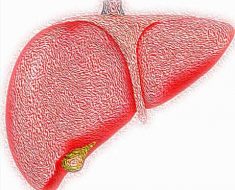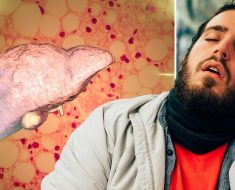Researchers at VCU Massey Cancer Center in Richmond, Virginia, have identified a promising target to reverse the development of high-risk neuroblastoma and potentially inform the creation of novel combination therapies for the disease.
Neuroblastoma, a cancer that begins in nerve tissue, is one of the most common pediatric solid tumors, accounting for about 700 new cases per year in the United States. The tumors are usually diagnosed in children younger than five years old, according to the American Cancer Society.
High-risk neuroblastoma is the most dangerous form of this cancer and is often distinguished by the overexpression of the MYCN protein. There are no drugs that are currently approved to treat MYCN-amplified disease, which represents about one-fourth of all neuroblastomas and has a survival rate below 50 percent.
Many cancers are caused by changes in a person’s DNA, but it is becoming more evident that changes in a person’s epigenome are also responsible for the development of many cancers, specifically pediatric cancers like neuroblastoma. The epigenome is essentially the chemical command center that tells individual genes what to do. Epigenetic drugs target the epigenome and are currently in high demand by many pharmaceutical companies.
A new study, led by Anthony Faber, Ph.D., member of the Developmental Therapeutics research program at VCU Massey Cancer Center, found that a novel epigenetic drug known as a H3K27me demethylase inhibitor can be used in combination with an existing drug called venetoclax to more effectively kill high-risk neuroblastoma cells.
“This research demonstrates one of the first examples of how epigenetic inhibitors and B-cell lymphoma 2 (BCL-2) inhibitors can be rationally combined. This is particularly exciting because BCL-2 inhibitors are already approved by the U.S. Food and Drug Administration,” Faber said, adding that BCL-2 is a primary protein involved in the regulation of cell death (apoptosis).
H3K27me refers to a modification (methylation) on a specific group of proteins called histones; histone methylation leads to decreased expression of genes. A demethlyase is a protein that can slow or stop the course of histone methylation.
Faber’s research, recently published in Science Translational Medicine, showed that H3K27me demethylase inhibition increases H3K27me to initiate cell differentiation, a natural biological process where cells evolve into more specialized cells. One of the primary characteristics of high-risk neuroblastoma is that the cells resist differentiation and therefore cannot mature normally.
“Pro-differentiation drugs have long been used as part of treatment for high-risk neuroblastoma. We believe this is a really interesting finding because it demonstrates that differentiation problems involve errant histone demethylation. As a result, a normally growing cell is likely stopped in its tracks, essentially getting stuck before it can differentiate. This interruption provides a dangerous window of time for the cell to become cancerous before the body can naturally clear it,” said Faber, who is also a Harrison Endowed Scholar in Cancer Research at Massey and an assistant professor in oral and craniofacial biology at the Philips Institute for Oral Health Research at the VCU School of Dentistry. “Moreover, the fact that this demethylation error can be targeted and readily reversed long after the cancer grows was somewhat surprising to us, and we think it is a critical insight into how we can potentially treat high-risk neuroblastoma.”
In addition to reversing neuroblastoma cells’ inability to differentiate, H3K27me demethylase inhibitors were found to instigate cellular stress. This stress forced the neuroblastoma cells to become much more malleable and therefore more vulnerable to venetoclax, a BCL-2 inhibitor.
Faber had previously shown that venetoclax was individually successful in the treatment of neuroblastoma, specifically high-risk tumors characterized by the overexpression of MYCN. The new study suggests that combining venetoclax with the new epigenetic drug may be even more effective.
“H3K27 demethylation inhibition is a promising therapeutic target to treat high-risk neuroblastoma, and H3K27 demethylation can be part of rational combination therapies to induce anti-neuroblastoma activity,” Faber said.
Looking forward, Faber said that he and his research team will continue to collaborate with AbbVie Inc., the pharmaceutical company responsible for manufacturing venetoclax, to transition the combination of venetoclax and epigenetic drugs into clinical trials for neuroblastoma.
Source: Read Full Article





